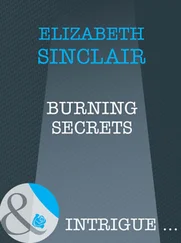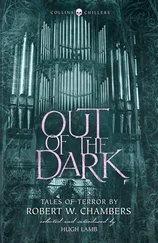With some difficulty Daniel got the passenger door open just far enough to admit his arm, and managed to clip the lead on to Chet’s collar, keeping the other end wound tightly around his wrist. Together, boy and dog made halting progress up to the passenger deck, keeping away from the outer edge. There was a stiff breeze blowing and they faced into it, whipped by the salty wind for a moment before heading around to the sheltered side of the boat. On the front car deck, which was swilling with water, were a couple of motorbikes chained to blocks. Each time the boat hit a trough another explosion of spray would clatter down on the bikes before streaming over the sides. Daniel’s earlier exploration of the boat had taken only a matter of minutes. There were no slot machines, no restaurant, no duty-free shop; just a Ladies and Gents, and a small bar selling tea, coffee and watery hot chocolate in polystyrene cups. A Perspex cabinet on the counter offered a selection of depressing snacks: a solitary scone beside a curl of butter; a slab of fruit cake, sweating in its polythene wrapper, an Eccles cake, whatever that was, and a pasty with something orange oozing from a breach in its pastry wall.
Breakfast – a Full English at the Travelodge in Plymouth – now seemed a long way off, so Daniel bought the pasty. The woman serving behind the counter had microwaved it for two whole minutes so the filling was as hot as magma, and the first bite had stripped a layer off the top of his mouth. He could still feel fronds of skin hanging down like seaweed from the roof of a cave.
There were only three other occupants in the bar; a couple of guys in leather biker gear, who were drinking beer from their own private stash, and a youngish woman with long frizzy hair, who was reading a book. Along with the few people in the lounge that brought the total number of passengers to sixteen.
Revived by the buffeting wind and the reassuring open expanse of sea and sky, Daniel completed his circuit of the boat and lured Chet back into the car with a Bonio. Back in the lounge he found Louie sitting up, rumpled and woozy from sleep, her hair bristling with static and in the foulest of moods.
“I’m dying,” she croaked. “I actually am. If anybody’s interested.”
No one was. Hardly taking her eyes from the crossword, their mum passed across a plastic bag. “If you’re going to be sick, use this.”
“It’s got a whacking great hole in the bottom!” Louie protested, crumpling it into a ball and chucking it back in disgust. It landed on the floor and began slowly to unfurl. Several passengers glanced over, tutting. Louie glared back.
Having failed to arouse any sympathy for her imminent death, she began to hunt in the holdall under the table in search of refreshment.
“Who drank the last Diet Coke?” she demanded.
“You did,” said Daniel. “I don’t even like the stuff.” He couldn’t help laughing at her outraged expression. She was so easy to wind up. He couldn’t wait to see her face when she found out there was no mobile reception. That would really cause a meltdown.
Before he had a chance to test this out, Mum was pointing at the window, saying, “I think you can just see it now.”
Through the salt-smeared glass, in the grey distance between sea and sky, was a blue shape like the humped back of a partly submerged monster. The Island of Wragge. Daniel felt a fluttering of anticipation in his stomach, like the beating of trapped wings. All their plans and preparations had been based on getting away from their troubles – putting the whole damn thing behind them – but without any clear idea of what they were running towards.
Chapter 2
W ELCOME TO P ORT J ULIAN , read the sign at the harbour. TWINNED WITH IVRE-SUR-SEINE AND KRAUSBURG.
“Surely that would make triplets, not twins,” Daniel observed. Another sign showed a cartoon of a smiling sun and a smiling moon above the words KEEP PORT JULIAN SPECIAL .
A couple of mail sacks had been slung out on to the quay, and then the six cars, two motorbikes and one lorry which comprised the ferry’s entire cargo, rolled down the ramp to form a short queue at an electronic barrier across the road. A man in uniform – some sort of customs official – was checking papers and waving people through. Or not.
Up ahead the two bikers had been pulled over, and seemed to be having some sort of altercation with another official who had emerged from his booth.
“Do we need passports?” Louie asked her mum.
“Of course not. This is part of the UK.”
“So what is the purpose of your visit?” the official asked the bikers. “Visiting friends?”
“No. Just a holiday,” said the larger of the two, who had removed his helmet, in order to be more clearly understood.
“Where are you staying?”
They pointed to the sausage of rolled canvas that was lashed to the back of one of the motorbikes. “We’re camping.”
“It’s illegal to pitch a tent except on a registered camping site,” the official said, as though reciting from a carefully memorised book of by-laws.
“Fine. We’ll go to a campsite,” said the biker, beginning to lose patience.
“There are no registered camping sites on Wragge,” said the official with the merest hint of triumph in his voice. “And unfortunately,” he consulted his clipboard, “there is only one hotel on Wragge and it’s fully booked. August is their busy month.”
“So are you saying we can’t stay here?” It was beginning to dawn on the two bikers that persistence was not going to prevail.
“What if we were coming here to visit friends?” demanded the smaller man. “That would be all right, would it?”
“Oh yes,” said the official reasonably. “That would be perfectly all right. But you’re not.”
The rest of the queue, displaying surprising patience in the face of this hold-up, was eavesdropping shamelessly.
The other biker was beginning to smoulder. He was a big, muscular type, and looked to Daniel like he’d prefer to settle a disagreement with a fist fight rather than a battle of words.
“OK,” said his mate, to head off a scene. “What if we want to have a drive around the island, and then get the last ferry back tonight. That’s not illegal, is it?”
“Of course not,” said the official, his face wreathed in smiles. “That would be absolutely fine.” He gestured to his colleague to raise the barrier.
“What time does the last ferry leave?”
The man drew back a stiff shirt cuff to check his watch. “Forty-five minutes,” he said cheerfully. “Starts loading in thirty.” He turned his back on their protests, and advanced towards the next car in the queue, beaming with satisfaction. “Welcome to Wragge.”
When it came to their turn Daniel felt suddenly anxious that this Little Hitler with his clipboard would find some excuse to send them packing too. But instead he looked over their residency permit and nodded in recognition.
“The Brow,” he said, reading the address on the document before passing it back. “Ericsson’s old place. That’s been empty a while. The neighbours have been keeping an eye on it though. Garden was getting a bit overgrown.”
“Well, my grandfather moved into a nursing home on the mainland about a year ago,” Daniel’s mum replied. “He’d been quite infirm for some time,” she added, as though obliged to explain his shortcomings as a gardener.
“Nice old boy. Used to see him walking about in his shorts in all weathers,” the official said. “How is he?”
“Dead,” said Louie.
“I’m sorry to hear that.” The man shook his head sadly. “You moving here for good then?”
Читать дальше


![W. R. Chambers Ltd. - W. & R. Chambers's Books, Suitable for Prizes and Presentation [1892]](/books/571823/w-r-chambers-ltd-w-r-chambers-s-books-suit-thumb.webp)









